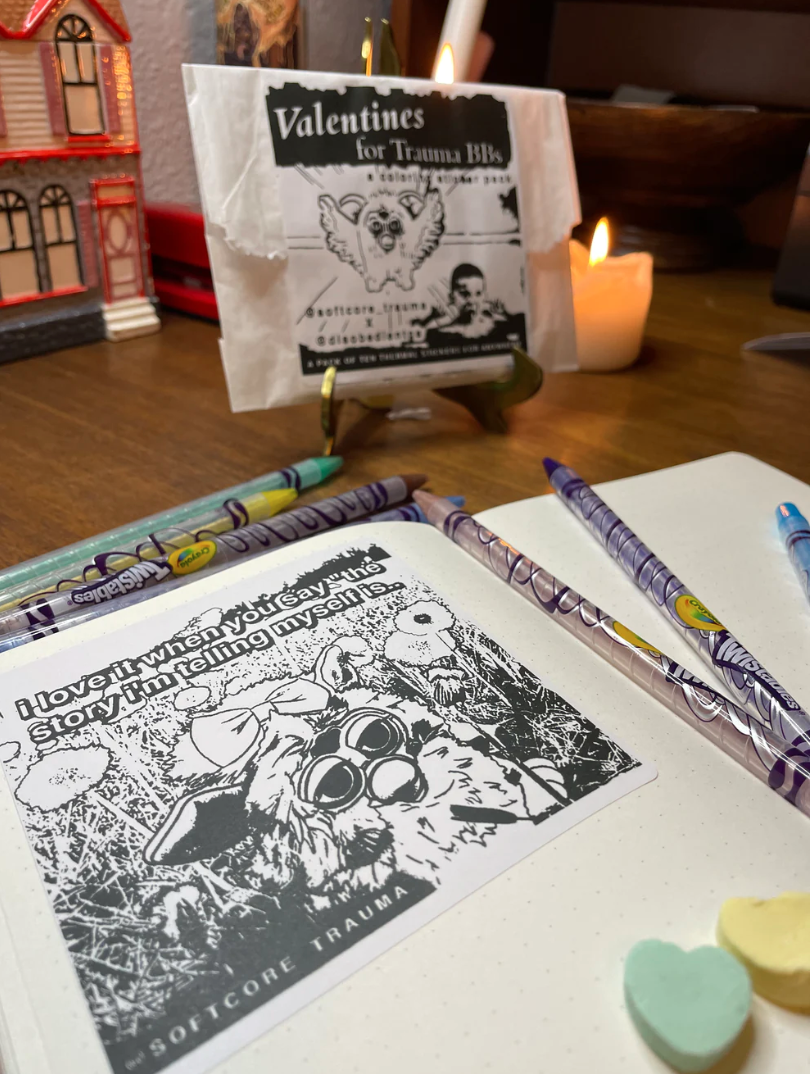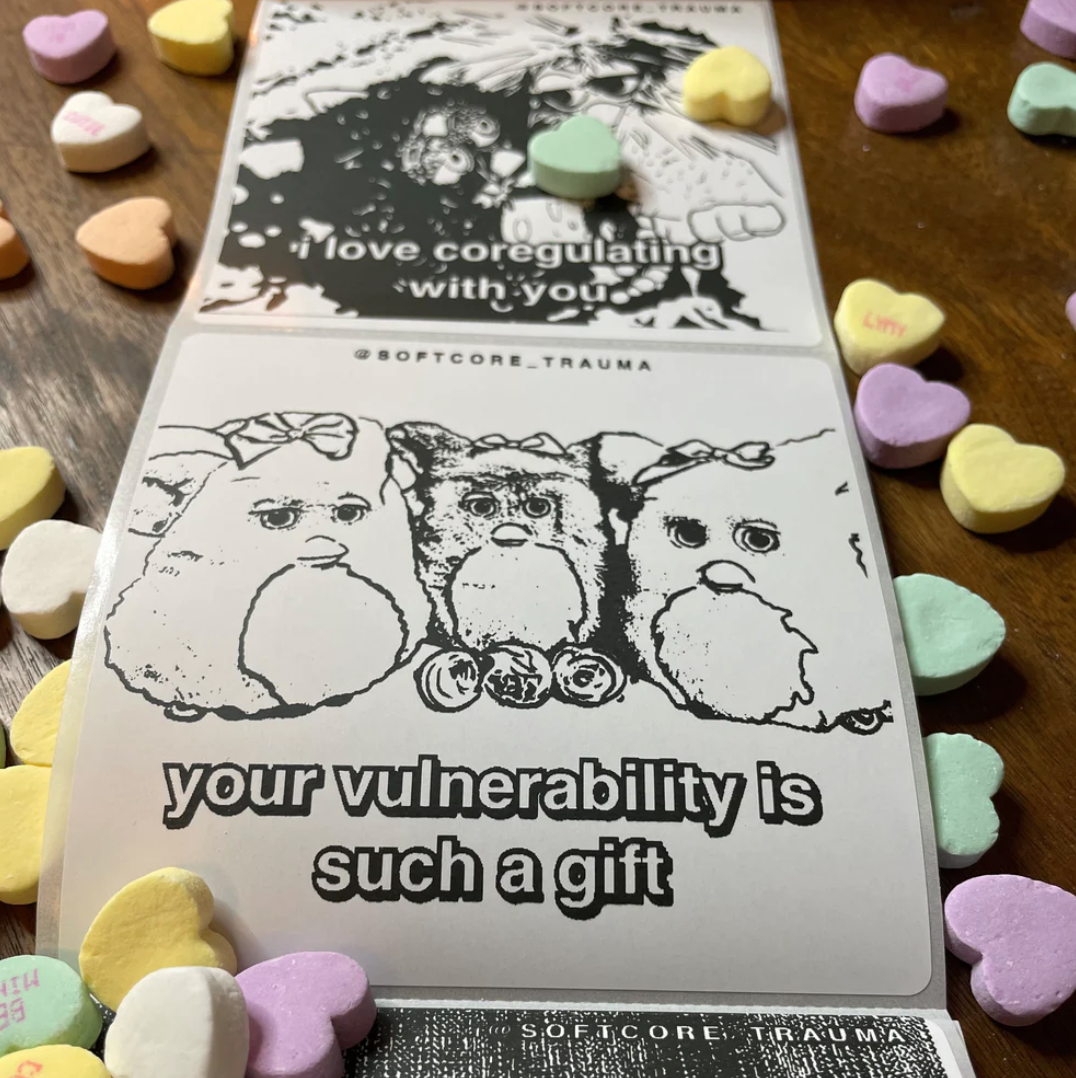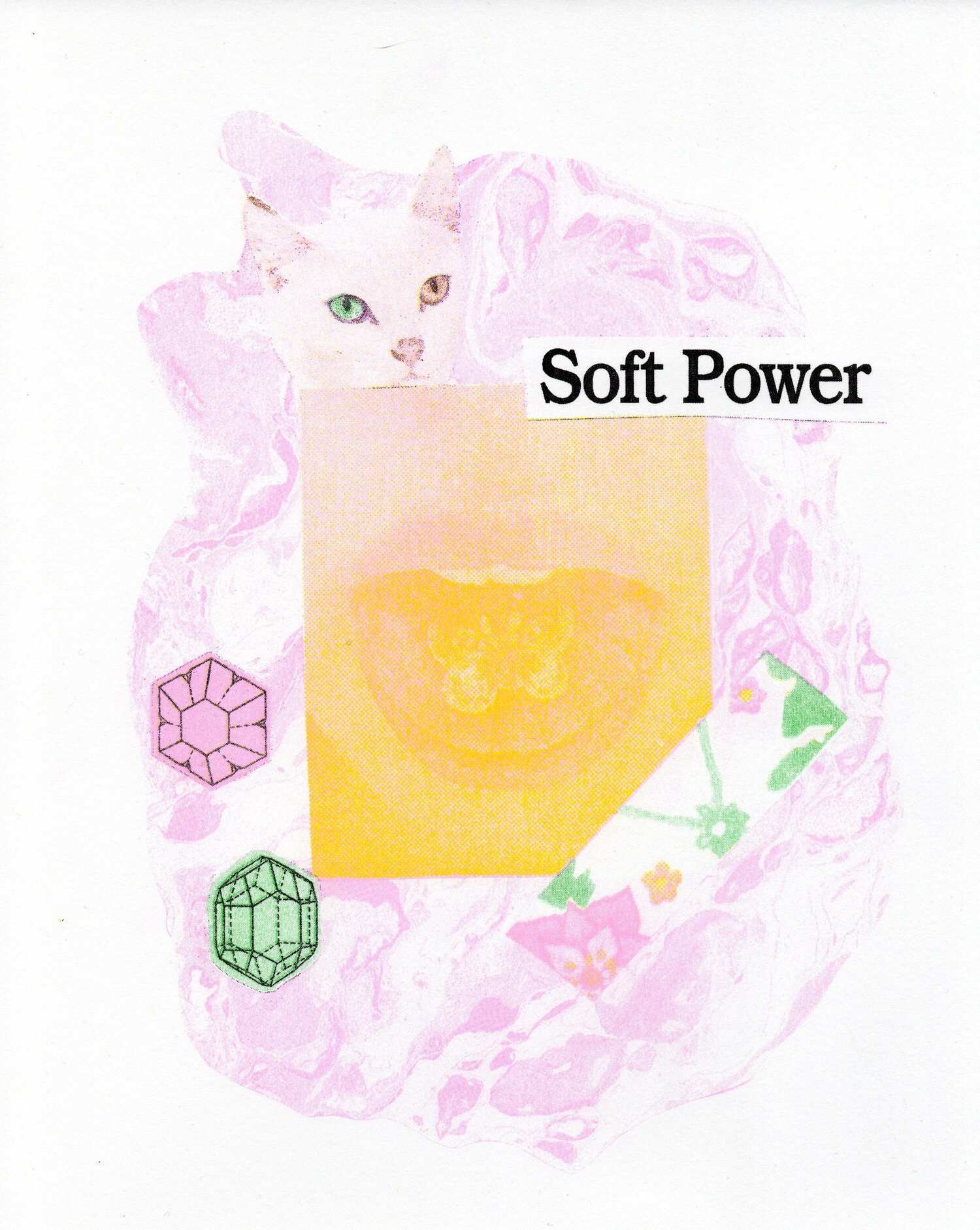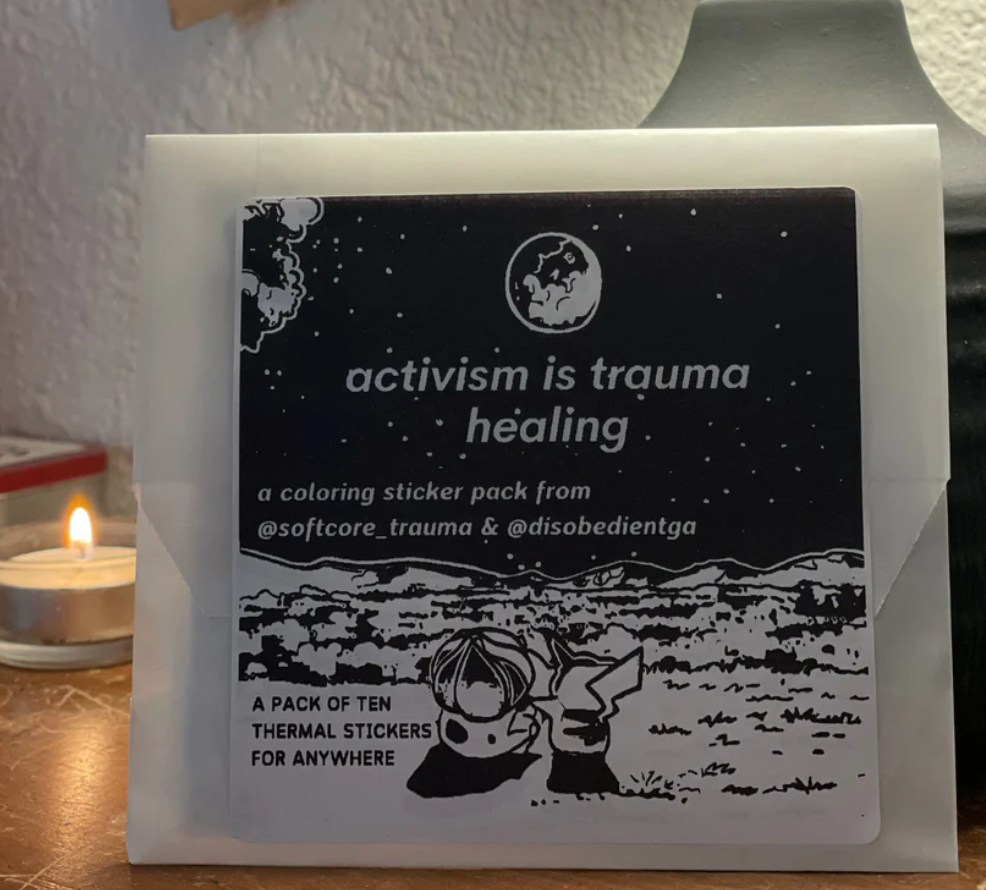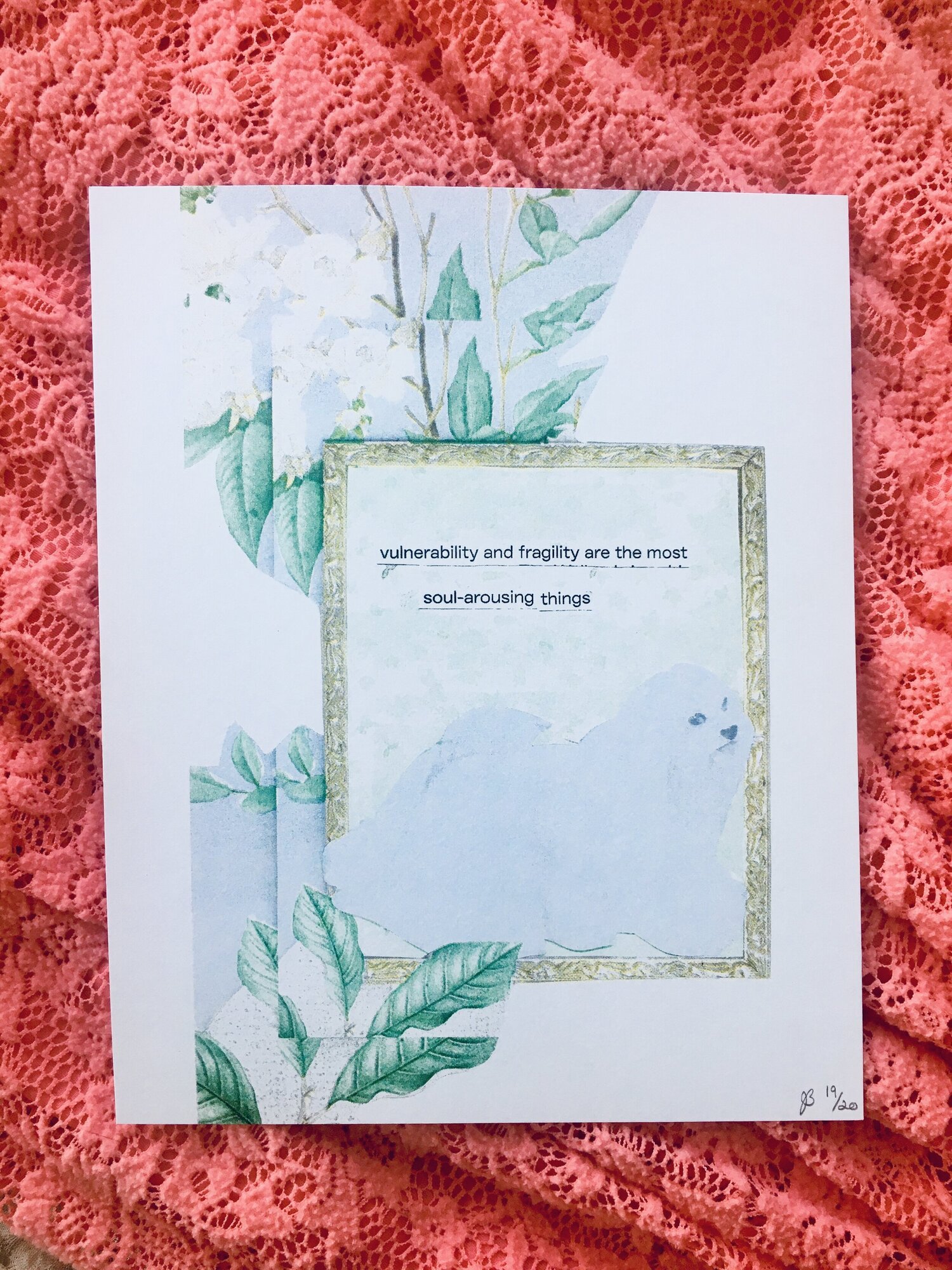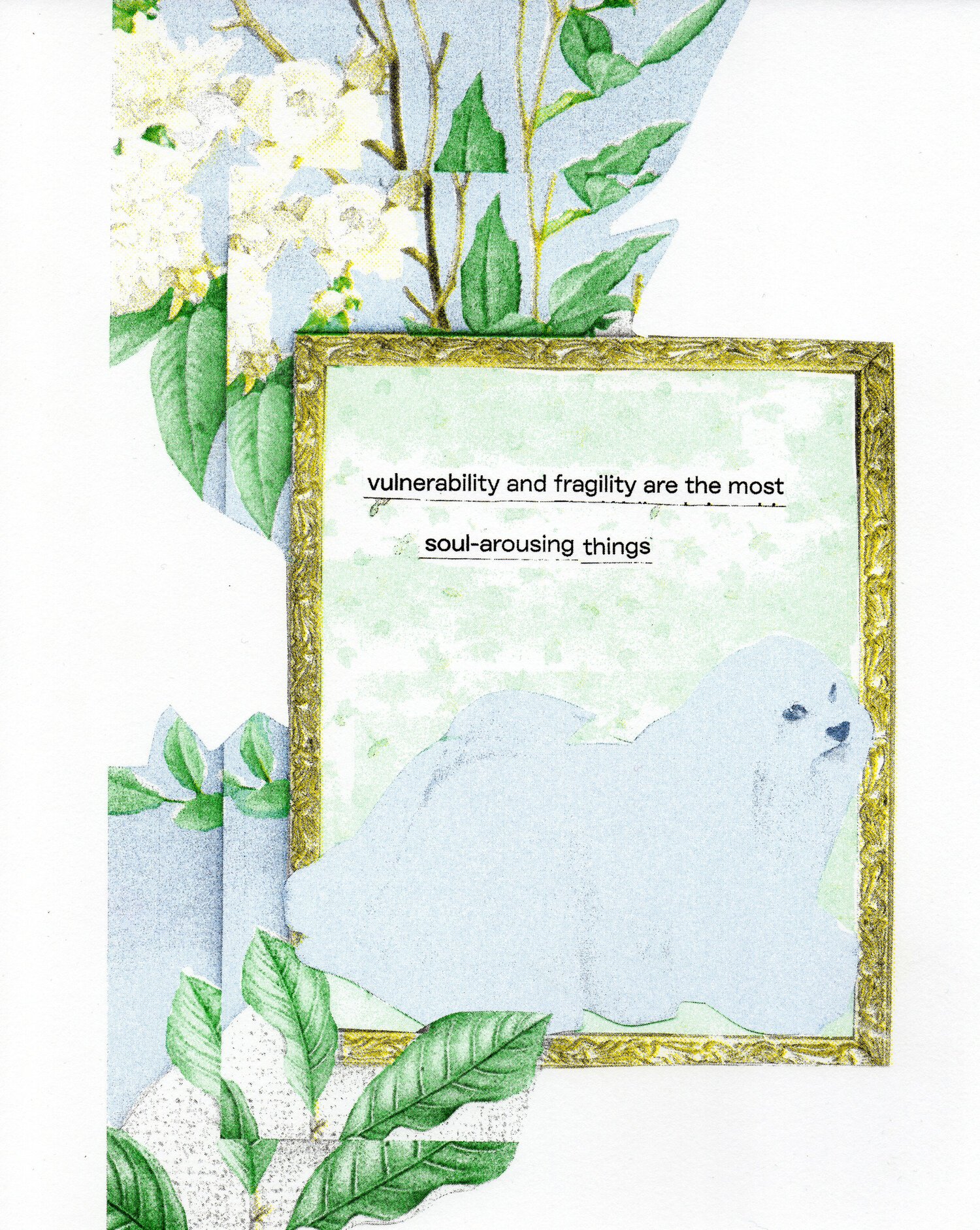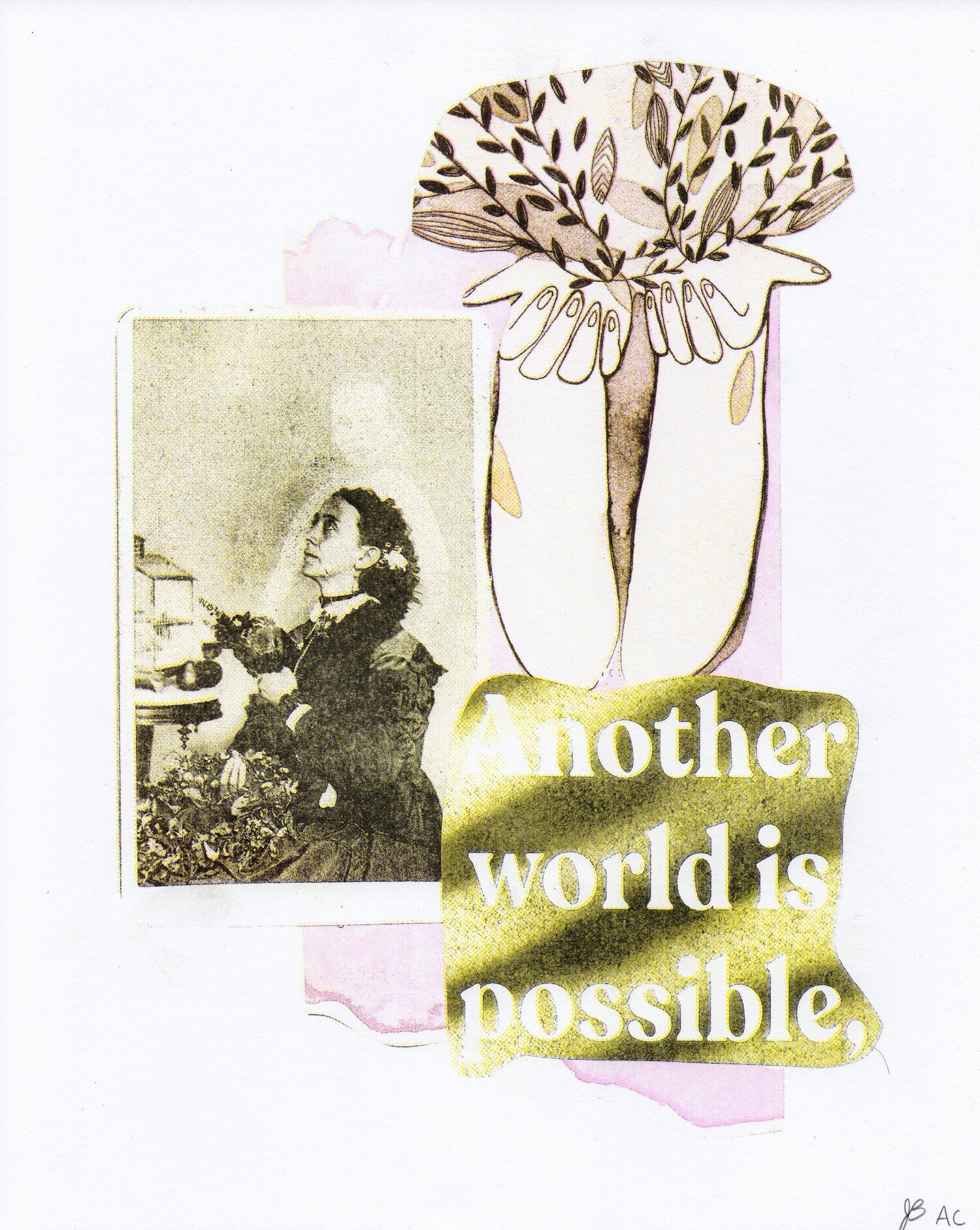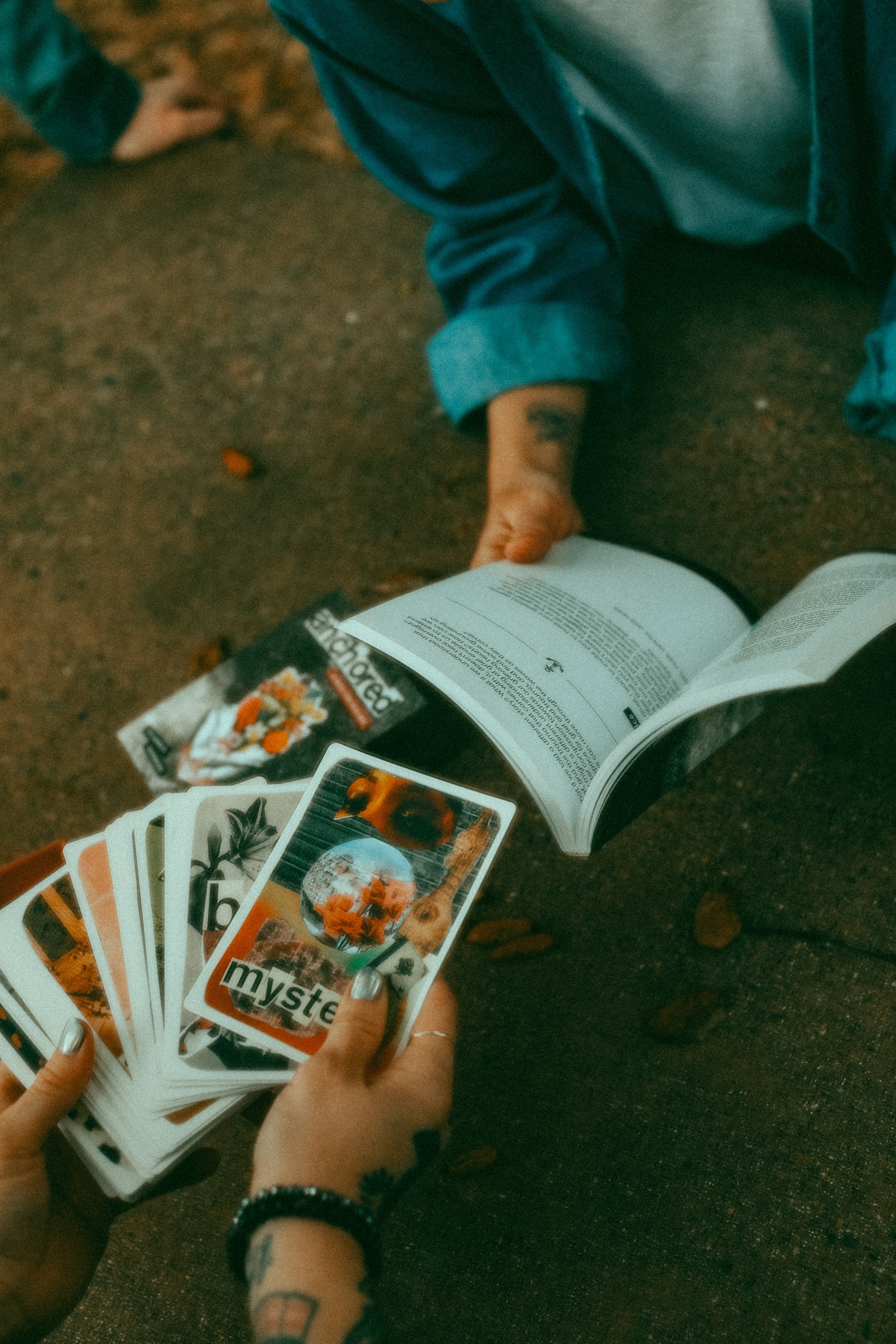 Image 1 of 9
Image 1 of 9

 Image 2 of 9
Image 2 of 9

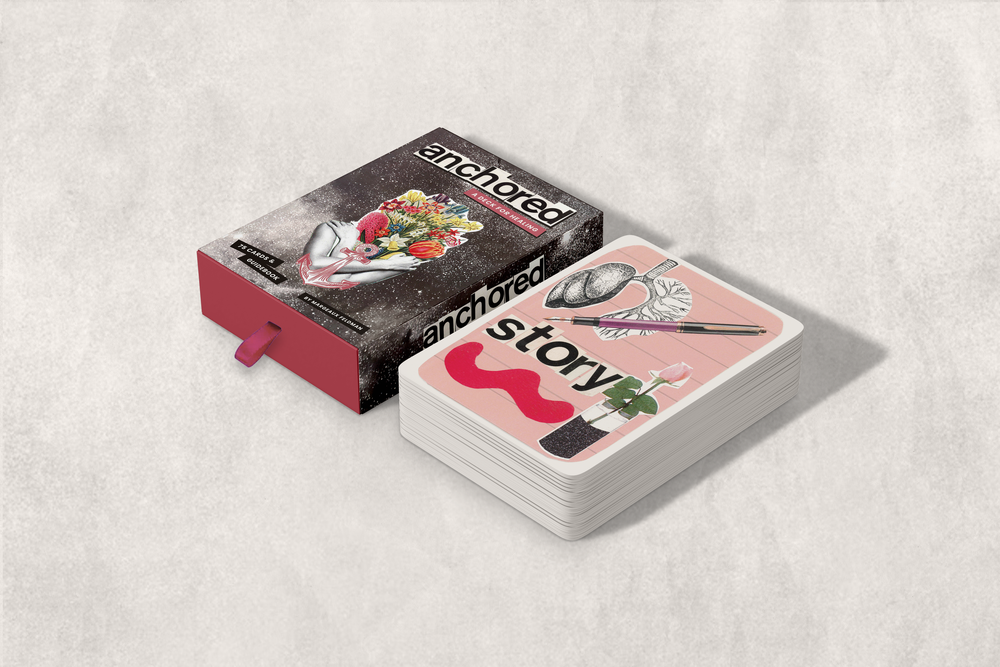 Image 3 of 9
Image 3 of 9

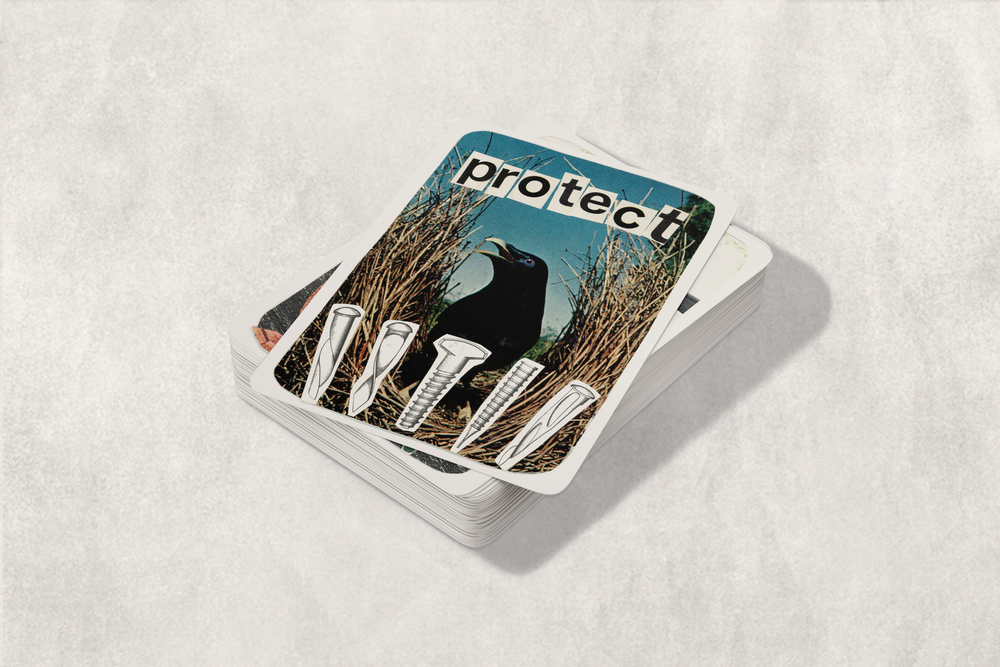 Image 4 of 9
Image 4 of 9

 Image 5 of 9
Image 5 of 9

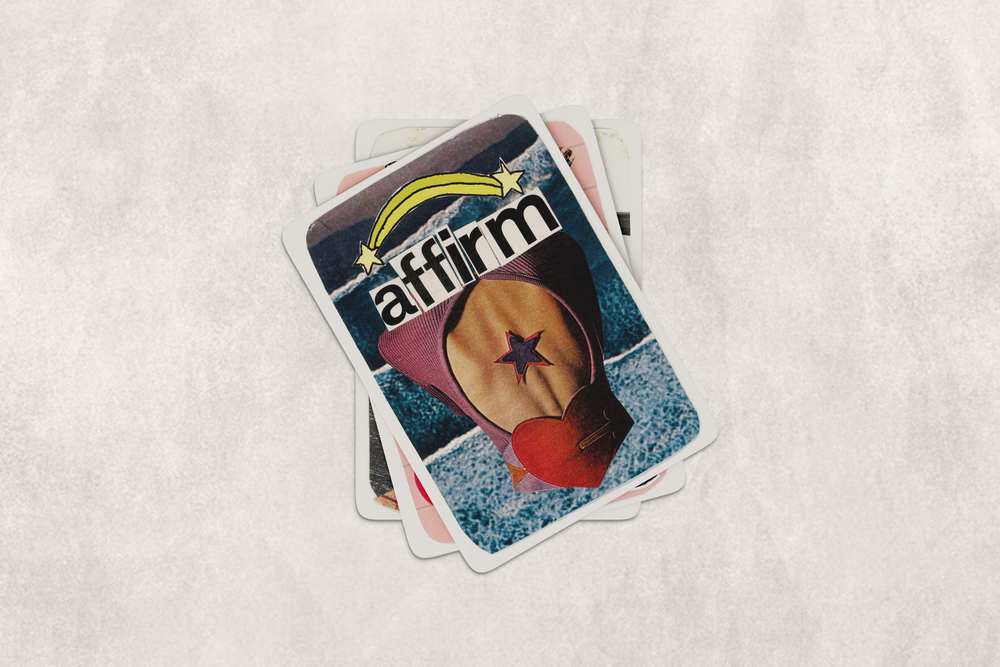 Image 6 of 9
Image 6 of 9

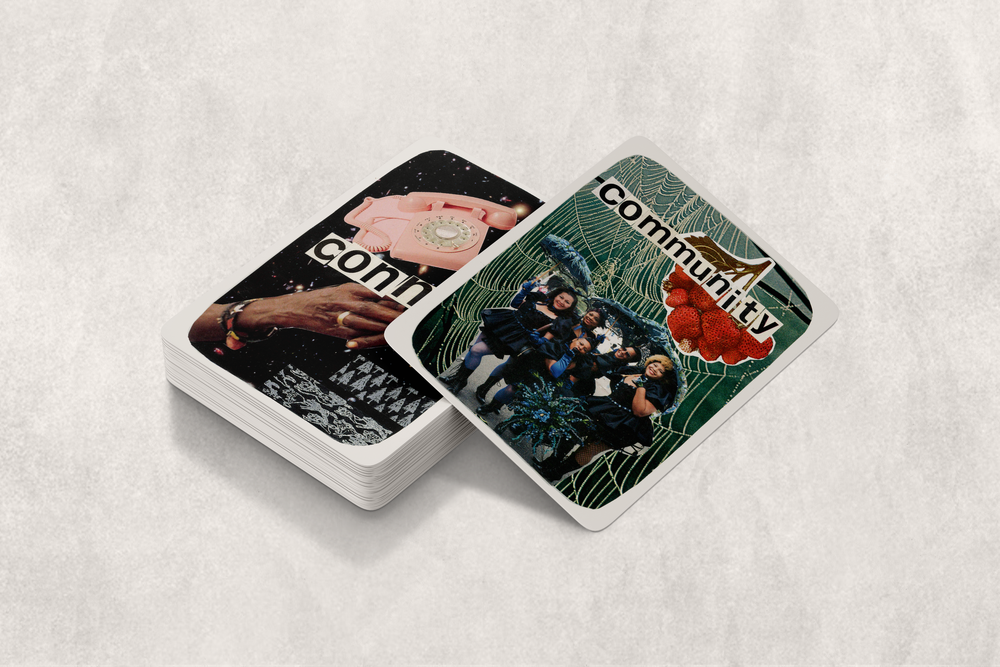 Image 7 of 9
Image 7 of 9

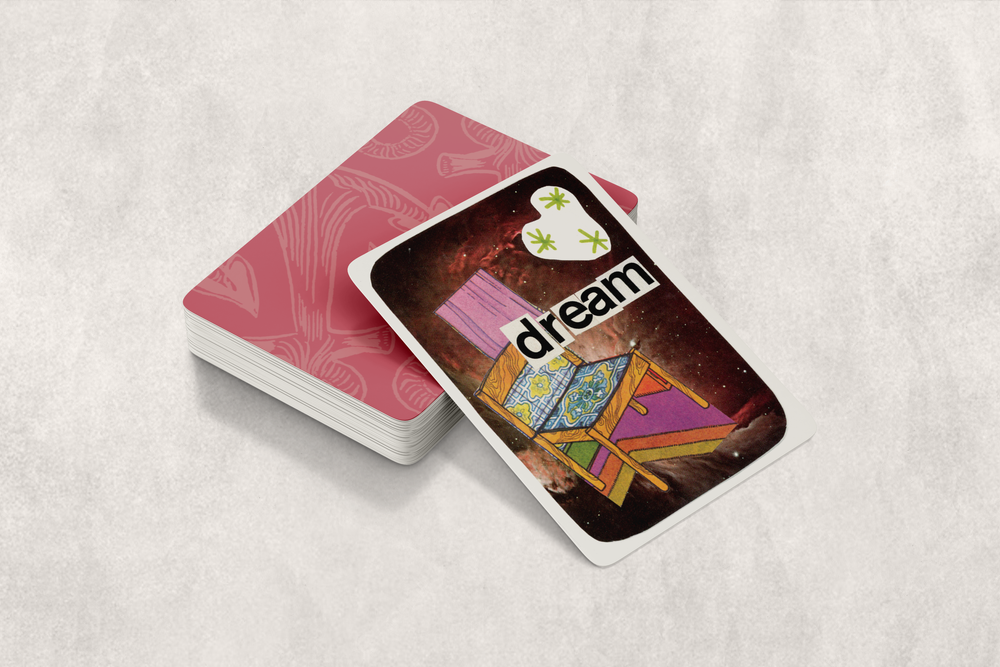 Image 8 of 9
Image 8 of 9

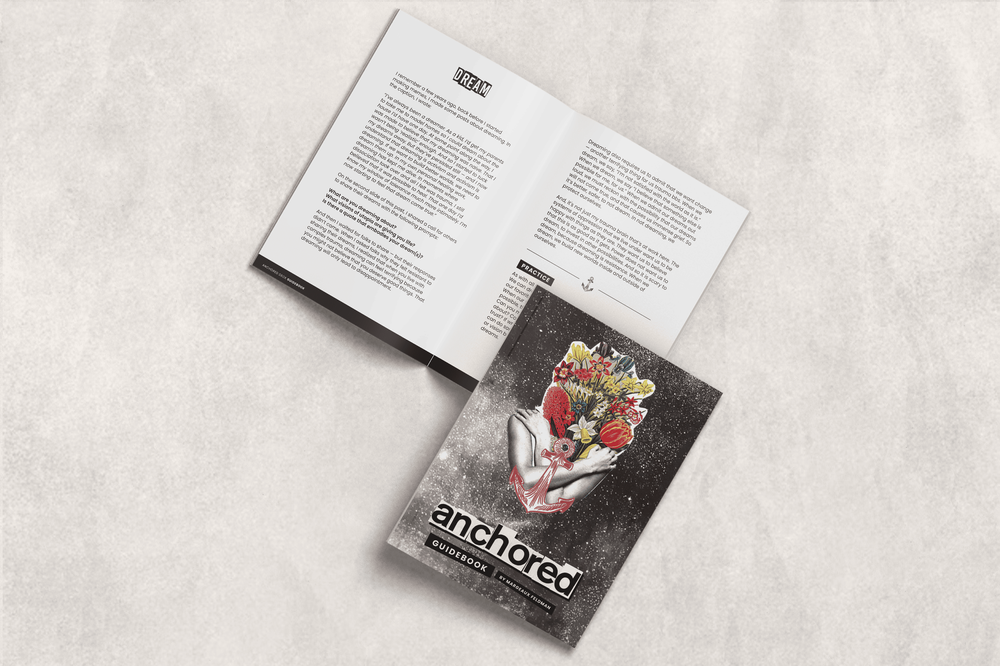 Image 9 of 9
Image 9 of 9










anchored - a deck for healing
anchored is a deck that began as I started my own healing journey from complex trauma and chronic illness. I felt completely unmoored from myself, and this deck served as an anchor in turbulent waters. Within the world of trauma healing, there’s a lot of emphasis on the practice of grounding. On a literal level, grounding is when we move out of states of nervous system activation – fight, flight, freeze, submit – by feeling the ground underneath us; on a metaphorical level, grounding is feeling calm and rooted. In my experience, grounding has felt totally inaccessible at times. Perhaps because there is no earth in my astrology chart. Perhaps because I’ve always felt my calmest when I’m in or near water. I needed different language, and so I came to the word “anchor.”
Each of the 75 cards in this deck serve as their own anchor. You can pick up this deck in moments where your nervous system is dysregulated and ask the deck for the anchor you need. It can also support you in other hard moments in life: before a job interview, before a first date, after you’ve spent the day with your family, after a hard conversation with a loved one. You can also start your day by pulling a card and let that anchor guide you. Once you’ve pulled a card – or used one of the spreads included in the guidebook – you can open the guidebook and learn more about each card’s meaning, written from a trauma-informed, social-justice perspective. Each card also includes a practice, an invitation to deepen into the anchor, embody it, and integrate it.
It’s important to note that I’m not a therapist or clinician. I’m a human being living with trauma, who has done a lot of training and research in trauma healing (you can learn more by clicking my “about” page). As someone working in the field of peer-to-peer trauma healing, I try to carefully acknowledge where I am out of my own depth and scope of learning and practice. I have not offered practices here that I wouldn’t share with loved ones.
Product Details
75 cards printed on 350gsm matte art paper
Matchbox-style slideout box with ribbon pull tab
180-page guidebook
Package weight: ~1.9 lbs
Pricing
As someone who grew up poor, and who believes that finances are an access barrier, I strive to make my offerings as accessible as possible. With this deck, I’ve set the price at $59 USD. For those who could not afford it otherwise, I’ve set aside 500 decks at a reduced rate of $49. When purchasing the deck, I ask folks to act in integrity with what they know to be true about their financial situation, so that those who need the reduced rate are able to access it.
Shipping
Due to the weight of the cards and book the shipping cost may still be prohibitive to some. This is why we decided to make the digital and printable version available. If you would like to order more than three decks, pleaseemail hello@margeauxfeldman.com.
If you are ordering from the UK or Europe, shipping may be less expensive to order through my new UK stockist, Little Red Tarot Shop.
Finally, if you’re ordering anchored + other products, like zines or stickers, you will be charged shipping costs for both items. If I am able to ship items all in one package, I will refund you for the additional charges.
A Note on Representation
When I first started making the cards in this deck, they were just for me. And so I cut out whatever images I wanted to, assembled them on the cards, and selected the words to go with them. I was about 50 cards in when I decided that I wanted to share this deck with the world. At that time, I noticed how the majority of bodies on the cards were white, presumably able-bodied (though I know all too well how so many of us live with invisible illnesses), and skinny. I didn’t know what to do. One part of me said that I should ensure that there was greater representation and another part said that, as a white person with an invisible disability who’s curvy but still straight-sized, I had no place to make art – and, art that I would profit off of – with Black, Indigenous, and people of color, fat, visibly disabled, or masculine folks. White folks have rightly been called in and out for representing experiences that aren’t their own, often fetishizing those that they represent. I decided to keep the deck as it was.
In the process of bringing this deck to life, I had a conversation with one of my dearest friends, who called me in on the lack of representation in anchored. Her reflections brought back all of the unease I had felt around how a lack of representation just reproduces and centers whiteness and thinness. We also talked about how the lack of representation in the cards is also reflective of the lack of representation in magazines more broadly. I decided to source images digitally and remade 23 of the cards.
Along the way, I checked in with Black, Indigenous, and people of color in my life and asked for their feedback: would they rather see more representation (even if it was coming from a white person) or did they think I should stay in my lane and stay away from using bodies that do not reflect my experience? Overwhelmingly, the response was the former; that as someone with my platform, I had a responsibility to address the lack of representation and not continue to center whiteness. I won’t lie, I still feel uncertain about whether this was the right choice to make – and I know that there will be folks out there who disagree with me and the humans in my life. No culture is a monolith. And as a white person, I can see that there is still work for me to do around unlearning perfectionism and accepting that I cannot please everyone. To address the complexities of profiting off of this deck, I will be redistributing 5% of profits to mutual aid calls from Black, Indigenous, and people of color.
anchored is a deck that began as I started my own healing journey from complex trauma and chronic illness. I felt completely unmoored from myself, and this deck served as an anchor in turbulent waters. Within the world of trauma healing, there’s a lot of emphasis on the practice of grounding. On a literal level, grounding is when we move out of states of nervous system activation – fight, flight, freeze, submit – by feeling the ground underneath us; on a metaphorical level, grounding is feeling calm and rooted. In my experience, grounding has felt totally inaccessible at times. Perhaps because there is no earth in my astrology chart. Perhaps because I’ve always felt my calmest when I’m in or near water. I needed different language, and so I came to the word “anchor.”
Each of the 75 cards in this deck serve as their own anchor. You can pick up this deck in moments where your nervous system is dysregulated and ask the deck for the anchor you need. It can also support you in other hard moments in life: before a job interview, before a first date, after you’ve spent the day with your family, after a hard conversation with a loved one. You can also start your day by pulling a card and let that anchor guide you. Once you’ve pulled a card – or used one of the spreads included in the guidebook – you can open the guidebook and learn more about each card’s meaning, written from a trauma-informed, social-justice perspective. Each card also includes a practice, an invitation to deepen into the anchor, embody it, and integrate it.
It’s important to note that I’m not a therapist or clinician. I’m a human being living with trauma, who has done a lot of training and research in trauma healing (you can learn more by clicking my “about” page). As someone working in the field of peer-to-peer trauma healing, I try to carefully acknowledge where I am out of my own depth and scope of learning and practice. I have not offered practices here that I wouldn’t share with loved ones.
Product Details
75 cards printed on 350gsm matte art paper
Matchbox-style slideout box with ribbon pull tab
180-page guidebook
Package weight: ~1.9 lbs
Pricing
As someone who grew up poor, and who believes that finances are an access barrier, I strive to make my offerings as accessible as possible. With this deck, I’ve set the price at $59 USD. For those who could not afford it otherwise, I’ve set aside 500 decks at a reduced rate of $49. When purchasing the deck, I ask folks to act in integrity with what they know to be true about their financial situation, so that those who need the reduced rate are able to access it.
Shipping
Due to the weight of the cards and book the shipping cost may still be prohibitive to some. This is why we decided to make the digital and printable version available. If you would like to order more than three decks, pleaseemail hello@margeauxfeldman.com.
If you are ordering from the UK or Europe, shipping may be less expensive to order through my new UK stockist, Little Red Tarot Shop.
Finally, if you’re ordering anchored + other products, like zines or stickers, you will be charged shipping costs for both items. If I am able to ship items all in one package, I will refund you for the additional charges.
A Note on Representation
When I first started making the cards in this deck, they were just for me. And so I cut out whatever images I wanted to, assembled them on the cards, and selected the words to go with them. I was about 50 cards in when I decided that I wanted to share this deck with the world. At that time, I noticed how the majority of bodies on the cards were white, presumably able-bodied (though I know all too well how so many of us live with invisible illnesses), and skinny. I didn’t know what to do. One part of me said that I should ensure that there was greater representation and another part said that, as a white person with an invisible disability who’s curvy but still straight-sized, I had no place to make art – and, art that I would profit off of – with Black, Indigenous, and people of color, fat, visibly disabled, or masculine folks. White folks have rightly been called in and out for representing experiences that aren’t their own, often fetishizing those that they represent. I decided to keep the deck as it was.
In the process of bringing this deck to life, I had a conversation with one of my dearest friends, who called me in on the lack of representation in anchored. Her reflections brought back all of the unease I had felt around how a lack of representation just reproduces and centers whiteness and thinness. We also talked about how the lack of representation in the cards is also reflective of the lack of representation in magazines more broadly. I decided to source images digitally and remade 23 of the cards.
Along the way, I checked in with Black, Indigenous, and people of color in my life and asked for their feedback: would they rather see more representation (even if it was coming from a white person) or did they think I should stay in my lane and stay away from using bodies that do not reflect my experience? Overwhelmingly, the response was the former; that as someone with my platform, I had a responsibility to address the lack of representation and not continue to center whiteness. I won’t lie, I still feel uncertain about whether this was the right choice to make – and I know that there will be folks out there who disagree with me and the humans in my life. No culture is a monolith. And as a white person, I can see that there is still work for me to do around unlearning perfectionism and accepting that I cannot please everyone. To address the complexities of profiting off of this deck, I will be redistributing 5% of profits to mutual aid calls from Black, Indigenous, and people of color.
anchored is a deck that began as I started my own healing journey from complex trauma and chronic illness. I felt completely unmoored from myself, and this deck served as an anchor in turbulent waters. Within the world of trauma healing, there’s a lot of emphasis on the practice of grounding. On a literal level, grounding is when we move out of states of nervous system activation – fight, flight, freeze, submit – by feeling the ground underneath us; on a metaphorical level, grounding is feeling calm and rooted. In my experience, grounding has felt totally inaccessible at times. Perhaps because there is no earth in my astrology chart. Perhaps because I’ve always felt my calmest when I’m in or near water. I needed different language, and so I came to the word “anchor.”
Each of the 75 cards in this deck serve as their own anchor. You can pick up this deck in moments where your nervous system is dysregulated and ask the deck for the anchor you need. It can also support you in other hard moments in life: before a job interview, before a first date, after you’ve spent the day with your family, after a hard conversation with a loved one. You can also start your day by pulling a card and let that anchor guide you. Once you’ve pulled a card – or used one of the spreads included in the guidebook – you can open the guidebook and learn more about each card’s meaning, written from a trauma-informed, social-justice perspective. Each card also includes a practice, an invitation to deepen into the anchor, embody it, and integrate it.
It’s important to note that I’m not a therapist or clinician. I’m a human being living with trauma, who has done a lot of training and research in trauma healing (you can learn more by clicking my “about” page). As someone working in the field of peer-to-peer trauma healing, I try to carefully acknowledge where I am out of my own depth and scope of learning and practice. I have not offered practices here that I wouldn’t share with loved ones.
Product Details
75 cards printed on 350gsm matte art paper
Matchbox-style slideout box with ribbon pull tab
180-page guidebook
Package weight: ~1.9 lbs
Pricing
As someone who grew up poor, and who believes that finances are an access barrier, I strive to make my offerings as accessible as possible. With this deck, I’ve set the price at $59 USD. For those who could not afford it otherwise, I’ve set aside 500 decks at a reduced rate of $49. When purchasing the deck, I ask folks to act in integrity with what they know to be true about their financial situation, so that those who need the reduced rate are able to access it.
Shipping
Due to the weight of the cards and book the shipping cost may still be prohibitive to some. This is why we decided to make the digital and printable version available. If you would like to order more than three decks, pleaseemail hello@margeauxfeldman.com.
If you are ordering from the UK or Europe, shipping may be less expensive to order through my new UK stockist, Little Red Tarot Shop.
Finally, if you’re ordering anchored + other products, like zines or stickers, you will be charged shipping costs for both items. If I am able to ship items all in one package, I will refund you for the additional charges.
A Note on Representation
When I first started making the cards in this deck, they were just for me. And so I cut out whatever images I wanted to, assembled them on the cards, and selected the words to go with them. I was about 50 cards in when I decided that I wanted to share this deck with the world. At that time, I noticed how the majority of bodies on the cards were white, presumably able-bodied (though I know all too well how so many of us live with invisible illnesses), and skinny. I didn’t know what to do. One part of me said that I should ensure that there was greater representation and another part said that, as a white person with an invisible disability who’s curvy but still straight-sized, I had no place to make art – and, art that I would profit off of – with Black, Indigenous, and people of color, fat, visibly disabled, or masculine folks. White folks have rightly been called in and out for representing experiences that aren’t their own, often fetishizing those that they represent. I decided to keep the deck as it was.
In the process of bringing this deck to life, I had a conversation with one of my dearest friends, who called me in on the lack of representation in anchored. Her reflections brought back all of the unease I had felt around how a lack of representation just reproduces and centers whiteness and thinness. We also talked about how the lack of representation in the cards is also reflective of the lack of representation in magazines more broadly. I decided to source images digitally and remade 23 of the cards.
Along the way, I checked in with Black, Indigenous, and people of color in my life and asked for their feedback: would they rather see more representation (even if it was coming from a white person) or did they think I should stay in my lane and stay away from using bodies that do not reflect my experience? Overwhelmingly, the response was the former; that as someone with my platform, I had a responsibility to address the lack of representation and not continue to center whiteness. I won’t lie, I still feel uncertain about whether this was the right choice to make – and I know that there will be folks out there who disagree with me and the humans in my life. No culture is a monolith. And as a white person, I can see that there is still work for me to do around unlearning perfectionism and accepting that I cannot please everyone. To address the complexities of profiting off of this deck, I will be redistributing 5% of profits to mutual aid calls from Black, Indigenous, and people of color.


